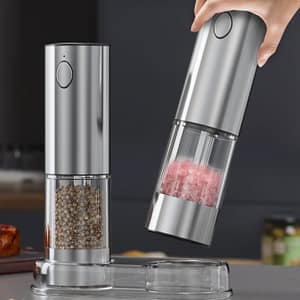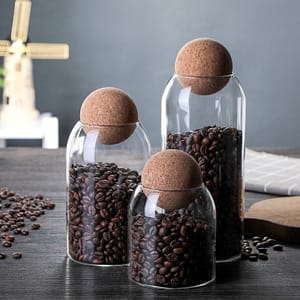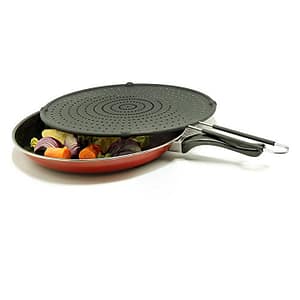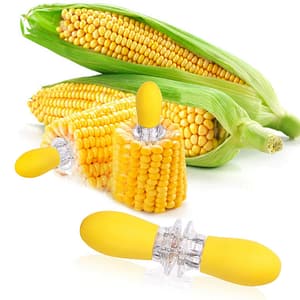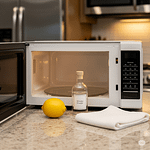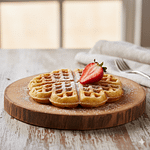
Blog Details

Why Your Coffee Tastes “Off” Every Morning (And 3 Simple Fixes You Need to Know)
For many of us, the aroma of brewing coffee is the unofficial start to the day. It promises comfort, a jolt of energy, and a moment of quiet reflection before the world rushes in. But what happens when that eagerly anticipated first sip doesn’t quite hit the mark? When your coffee tastes… well, just a bit “off”?
It’s a frustrating experience, especially when you’ve invested in quality beans and a good coffee maker. The good news is, an “off” taste usually isn’t a mystery, but rather a solvable puzzle. Often, the culprits are simple habits or overlooked details in your brewing routine.
Let’s dive into the common reasons your coffee might be disappointing you and, more importantly, how to fix them for a consistently perfect cup.
The Hidden Culprits Behind Your “Off” Tasting Coffee
You might think you’ve got your coffee routine down pat, but subtle factors can significantly impact the final flavor.
1. The Water Quality You’re Using
It’s easy to overlook, but water makes up over 98% of your brewed coffee! If your tap water has a strong chlorine taste, high mineral content, or any odd flavors, those will transfer directly to your coffee.
- How it affects taste: Chlorine can make coffee taste bitter or chemical. Excessive minerals can lead to a chalky or metallic taste, while too few minerals can result in a flat, watery brew.
- The Fix: Consider using filtered water. A simple carbon filter pitcher can do wonders. If you’re serious about your brew, a more advanced home filtration system can provide ideal water for coffee extraction. You don’t need fancy bottled water, just clean, neutral-tasting water.
2. Grind Size and Freshness (It Matters More Than You Think)
The way your coffee beans are ground and how fresh they are play a critical role in extraction – the process of drawing flavor from the grounds.
- How it affects taste:
- Too Coarse: Water passes through too quickly, resulting in under-extracted coffee that tastes weak, sour, or watery.
- Too Fine: Water gets stuck, leading to over-extraction, which makes coffee taste bitter, acrid, or hollow.
- Stale Grounds: Coffee loses its volatile aromatic compounds rapidly after grinding. Stale grounds result in a flat, lifeless cup with muted flavors.
- The Fix:
- Grind Fresh: The golden rule of great coffee is to grind your beans just before brewing. If you’re buying pre-ground coffee, try to buy smaller quantities more frequently.
- Match Grind to Brew Method:
- Coarse: French Press, Cold Brew
- Medium: Drip Coffee Makers, Pour Over
- Fine: Espresso, Moka Pot
- Invest in a Good Grinder: A burr grinder (rather than a blade grinder) provides a consistent, even grind, which is crucial for balanced extraction. Blade grinders chop beans unevenly, leading to both under and over-extraction in the same brew.
3. Unclean Brewing Equipment (The Sneaky Flavor Thief)
This is perhaps the most overlooked culprit. Residue from old coffee oils and mineral deposits can build up in your coffee maker, affecting the taste of every subsequent brew.
- How it affects taste: Old coffee oils turn rancid and impart a bitter, stale, or even muddy flavor to your fresh coffee. Mineral deposits can clog components and alter brewing temperature and flow, leading to inconsistent extraction.
- The Fix:
- Regular Cleaning: After every use, rinse your coffee carafe and filter basket thoroughly.
- Deep Cleaning: At least once a month (or more frequently if you use your machine daily), descale your coffee maker. Many manufacturers recommend using a solution of equal parts white vinegar and water. Run it through a brewing cycle, then run two or three cycles of plain water to rinse. For stubborn oil buildup, a specialized coffee cleaner can work wonders.
- Clean Your Grinder Too: Coffee oils can build up in your grinder as well. Use specialized grinder cleaning tablets or run a small handful of uncooked rice through it (check your grinder’s manual first!) to absorb oils and remove old particles.
Beyond the Fixes: Elevating Your Coffee Experience
Once you’ve addressed these core issues, you’re well on your way to consistently great-tasting coffee. But the journey doesn’t have to stop there!
- Bean Storage Matters: Store your whole beans in an airtight container, away from light, heat, and moisture. Avoid storing them in the refrigerator or freezer unless you’re using a truly airtight, vacuum-sealed container for long-term storage, as they can absorb odors.
- Temperature Control: The ideal brewing temperature is between 195°F and 205°F (90°C and 96°C). If your machine consistently brews too hot or too cold, it will impact flavor.
- Experiment with Ratios: The general recommendation is 1-2 tablespoons of ground coffee per 6 ounces (177 ml) of water. Don’t be afraid to adjust this to your personal preference.
By paying attention to these simple yet crucial details – your water, your grind, and your equipment’s cleanliness – you’ll unlock the full potential of your coffee beans. Say goodbye to “off” tasting coffee and hello to a consistently delightful morning ritual.
FAQ: Your Coffee Questions Answered
Q1: How often should I clean my coffee maker? A1: You should rinse the carafe and filter basket after every use. A deeper descaling and cleaning, using vinegar or a specialized cleaner, should be done at least once a month, or every 40-80 brew cycles, depending on your water hardness and usage.
Q2: Can I use tap water if I live in an area with good water quality? A2: While you can, even good tap water can contain chlorine or subtle minerals that affect taste. Using a simple filtered water pitcher (like a Brita or similar) is an inexpensive way to ensure a more neutral base for your coffee and is almost always recommended for optimal flavor.
Q3: Is it okay to store ground coffee in the freezer? A3: Generally, it’s not recommended. Ground coffee loses its flavor quickly regardless of storage method. Freezing can cause condensation and absorption of freezer odors. If you must store it longer, use an extremely airtight, vacuum-sealed container, but for daily use, buy whole beans and grind them fresh.
Q4: What’s the biggest difference between a blade grinder and a burr grinder? A4: A blade grinder chops beans unevenly, creating a mix of fine dust and large chunks, leading to inconsistent extraction and an “off” taste. A burr grinder grinds beans uniformly to a consistent size, allowing for even extraction and a much better-tasting cup of coffee. It’s one of the most impactful upgrades you can make to your coffee setup.
Q5: My coffee tastes sour. What’s wrong? A5: A sour taste often indicates under-extraction. This means not enough flavor compounds were pulled from the coffee grounds. Common reasons include: * Grind is too coarse: Try a finer grind. * Not enough coffee: Increase your coffee-to-water ratio. * Water temperature is too low: Ensure your brewer reaches the optimal temperature (195-205°F). * Brew time is too short: Extend the contact time between water and coffee, if applicable to your brew method.
Our Products
-
Unique Book Coffee Cup – Stack of Books Design
₹1,681.00 – ₹1,695.00Price range: ₹1,681.00 through ₹1,695.00 Select options This product has multiple variants. The options may be chosen on the product page -
Salt & Pepper Electric Grinder – Rechargeable
₹2,435.00 Select options This product has multiple variants. The options may be chosen on the product page -
Glass Storage Jar – Cork Lid & Minimalist Design
₹2,563.00 Select options This product has multiple variants. The options may be chosen on the product page -
Food grade Silicone Splash Screen – Mess-Free Cooking
₹2,158.00 Select options This product has multiple variants. The options may be chosen on the product page -
Stainless Steel Corn Cob Holders – Mess-Free
₹1,086.00 Select options This product has multiple variants. The options may be chosen on the product page -
Silicone Donut Mold – Makes 6 Non-Stick Donuts
₹833.00 Select options This product has multiple variants. The options may be chosen on the product page
Products
-
Unique Book Coffee Cup – Stack of Books Design
₹1,681.00 – ₹1,695.00Price range: ₹1,681.00 through ₹1,695.00 Select options This product has multiple variants. The options may be chosen on the product page -
Salt & Pepper Electric Grinder – Rechargeable
₹2,435.00 Select options This product has multiple variants. The options may be chosen on the product page -
Glass Storage Jar – Cork Lid & Minimalist Design
₹2,563.00 Select options This product has multiple variants. The options may be chosen on the product page -
Food grade Silicone Splash Screen – Mess-Free Cooking
₹2,158.00 Select options This product has multiple variants. The options may be chosen on the product page



